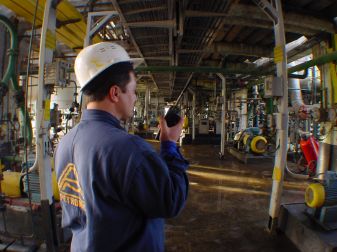Our strategy takes into account both economic factors and the needs of the business and community. Considerations include the anticipated decrease in demand for road fuels by 2030 due to population decline, increased electrification, and vehicle energy efficiency improvements. The transposition of stricter EU policies into national legislation is expected to raise costs associated with carbon certificates and biofuel quotas, potentially reaching 14% by 2030. Additionally, future regulations are predicted to support the development of low-carbon technologies, creating opportunities in renewable and low-carbon energy sources such as hydrogen. The strategy also includes plans for EV charging, with the potential addition of up to 15,000 new charging points by 2026.
KMG International has outlined four strategic options in its long-term sustainability strategy to address climate change and energy transition. These options are based on various criteria, such as internal capacity development, profitability of non-oil and gas sectors, business model sustainability, and alternative energy generation. The options are:
- Remaining a specialist in conventional oil & gas distribution with less than 5% diversification by 2030.
- Becoming a diversified downstream player with a diversification rate of 5-15% by 2030, gradually branching into biofuels and renewable electricity.
- Becoming an energy supplier with 15-40% diversification by 2030, focusing more on renewable energy solutions.
- Transitioning to a low-carbon energy supplier with complete fossil fuel sector divestment by 2030.
Following thorough evaluations, the recommended path is to pursue gradual diversification, including into 2nd generation biofuels and renewable electricity production, as well as to start energy supply after 2025. The eventual goal is to transition to an energy supplier by 2035-2040.
While becoming a full energy provider offers the highest financial benefits, high implementation complexity, financing requirements, and resource gaps make it less feasible to reach this position before 2030. However, achieving diversified downstream player status is a feasible target for 2030, leading towards the energy provider position afterwards.
Project portfolio
KMG International has set its technology outlook on transitioning to lower carbon and renewable energy, leading to the establishment of future projects. After assessing more than 40 decarbonization solutions, a portfolio of 9 key projects, worth approximately $600M, has been shortlisted for medium and long-term implementation. The immediate priorities are the production of biofuels and extending the electrical energy value chain. The first priority projects include launching biodiesel and bioethanol production, expanding EV charging in Rompetrol's network to about 100% coverage, entering renewable energy generation, and implementing on-site generation facilities.

